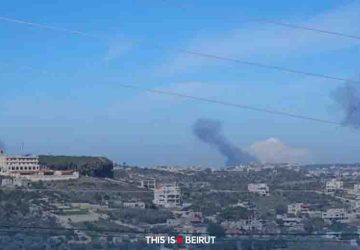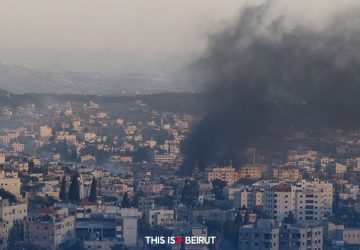Listen to the article
Despite the war between Hamas and Israel, Gaza’s Christian community, along with all Palestinians, stands resolute. Approximately 1,100 Palestinian Christians have been living in Gaza since the Nakba. Ignoring the Israeli army’s evacuation request, they adamantly refuse to abandon the two remaining open churches in Gaza, located in the northern part of the enclave.
Mainly Orthodox, the Christians of Gaza constitute 0.05% of the population. They gather at the Church of the Holy Family (Catholic), located near al-Shifa Hospital, and St. Porphyrius Church (Orthodox). The latter was hit by Israeli missiles on October 19, resulting in 18 deaths and numerous injuries. The Israeli army declared that the airstrikes were targeting a nearby Hamas command center. However, according to the al-Monitor news website, the building mentioned by the Israeli army was abandoned.
In the face of the intensification of the Israeli offensive, Palestinian Christians are grappling to maintain hope. “The situation in Gaza is tragic,” Sister Nabila tells This is Beirut. “During the truce, we went outside and witnessed the massive destruction caused by the bombings. Most Christian families have seen their homes demolished, and others have been so severely damaged that they are now uninhabitable.”
However, this cohesive community rejects the idea of relocating to the south due to the fear of potential homelessness. Sister Nabila asserts “The majority of Christians have opted to stay in the north,” highlighting that they are living “a tough experience filled with fear, horror, and challenges, but simultaneously embracing faith and hope.”
As a nun belonging to the Congregation of the Holy Rosary, Sister Nabila tirelessly works to support approximately 700 displaced individuals who have sought refuge in the compound of the Church of the Holy Family, including 50 disabled people. On November 4, the Holy Rosary Catholic School, where Sister Nabila serves as the director, was hit by an airstrike. Established in 2000, this school housed 1,250 students, both Christians and Muslims, offering education to underprivileged families. According to the Orthodox Patriarchate of Jerusalem, at least 19 places of worship, including mosques and churches, have been targeted in Gaza during the first three weeks of the conflict.
Despite the heavy bombardments, Sister Nabila stands stanch in her decision not to abandon her parish, especially considering that some individuals under her care are unable to relocate. She underscores the profound significance of territorial anchorage, asserting, “The future of each person lies within their homeland, not elsewhere. We are an integral part of the Palestinian society.” Furthermore, the Palestinian territory holds symbolic importance for Christians. Sister Nabila emphasizes, “The Church’s paramount concern is to facilitate the ability of Christians to remain on their land, the land of Christ.”
A project rendered difficult by the blockade conducted on the enclave and the regular confrontations between Hamas and Israel. Facing these difficulties, Christians, along with other Gazans, increasingly consider leaving the enclave in pursuit of a better future. Over the past 15 years, according to National Geographic, 70% of Gaza’s Christian population has chosen exile. This number could see a further increase given the Israeli operations in the enclave.
Despite the difficulties, Sister Nabila stands unwavering. “My faith empowers me to endure suffering, share it with others and live it with hope, love and service for the well-being of the families alongside us,” she concludes. A hope anchored in her Christian faith.





